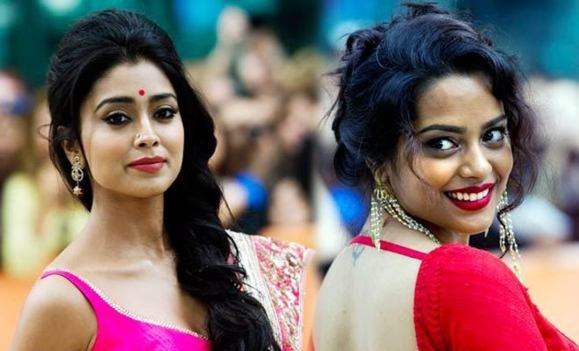
Rushdie's Booker prize-winning novel includes highly critical descriptions of the late prime minister Indira Gandhi, who suspended democracy in India between 1975 and 1977 in a period known as "The Emergency".
The Gandhi family remains at the centre of political life in India, with Indira's daughter-in-law Sonia Gandhi the president of the ruling Congress party and Sonia's son Rahul seen as a potential future prime minister.
Director Deepa Mehta earlier said the film reflected Rushdie's "love letter" to India.
"What a pity if insecure politicians deprive the people of India (of the chance) to make up their own minds about what the film means," Mehta told the Hindustan Times last month.
The newspaper said Indira's thinly-disguised character is depicted on screen in "a manner that conveys an almost Voldemort-like menace" -- a reference to Harry Potter's arch enemy.
Rushdie's 1988 book "The Satanic Verses" remains banned in India for allegedly insulting Islam.
The author spent a decade in hiding after Iranian spiritual leader Ayatollah Ruhollah Khomeini issued a fatwa in 1989 calling for his death due to passages in the book.
Last month he published an autobiography concerning the period, titled "Joseph Anton: A Memoir" after the pseudonym he used to conceal his identity.
Born in Mumbai, Rushdie was forced to withdraw from a literary festival in Jaipur this year after Islamist activists protested and issued death threats.
He recently slammed India for being "thin skinned" and increasingly censorious of works of art.
The film of "Midnight's Children", which was adapted by Rushdie, was shot in Sri Lanka, where the government came under pressure from Iran to stop the project.
The adaptation is due for worldwide release in October or November.
---------------------------------------------------------------------------------------------
The Gandhi family remains at the centre of political life in India, with Indira's daughter-in-law Sonia Gandhi the president of the ruling Congress party and Sonia's son Rahul seen as a potential future prime minister.
Director Deepa Mehta earlier said the film reflected Rushdie's "love letter" to India.
"What a pity if insecure politicians deprive the people of India (of the chance) to make up their own minds about what the film means," Mehta told the Hindustan Times last month.
The newspaper said Indira's thinly-disguised character is depicted on screen in "a manner that conveys an almost Voldemort-like menace" -- a reference to Harry Potter's arch enemy.
Rushdie's 1988 book "The Satanic Verses" remains banned in India for allegedly insulting Islam.
The author spent a decade in hiding after Iranian spiritual leader Ayatollah Ruhollah Khomeini issued a fatwa in 1989 calling for his death due to passages in the book.
Last month he published an autobiography concerning the period, titled "Joseph Anton: A Memoir" after the pseudonym he used to conceal his identity.
Born in Mumbai, Rushdie was forced to withdraw from a literary festival in Jaipur this year after Islamist activists protested and issued death threats.
He recently slammed India for being "thin skinned" and increasingly censorious of works of art.
The film of "Midnight's Children", which was adapted by Rushdie, was shot in Sri Lanka, where the government came under pressure from Iran to stop the project.
The adaptation is due for worldwide release in October or November.
---------------------------------------------------------------------------------------------









 Home
Home Politics
Politics









